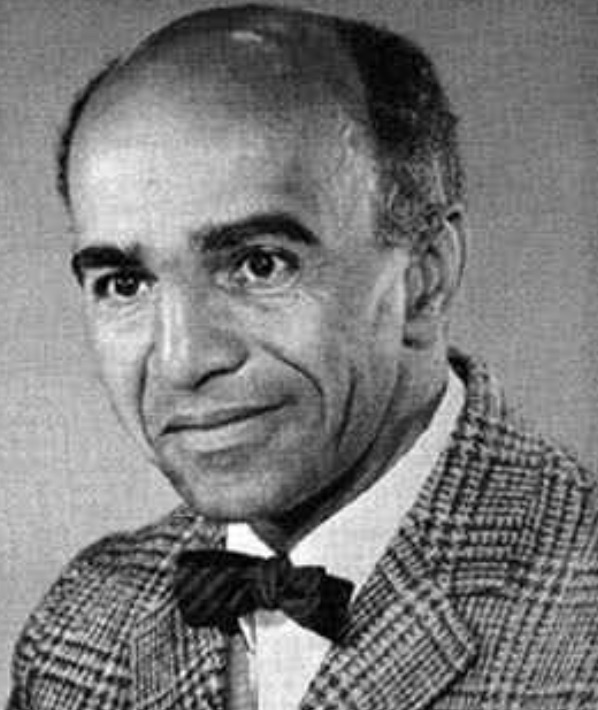
David Harold Blackwell was born on April 24, 1919 in Centralia, Illinois, USA into a working-class family. His father worked on the railroad and his mother was a homemaker. Although he grew up in a racially segregated community, he was able to attend an integrated school and later reported:
Southern Illinois was probably fairly racist even when I was growing up there. The school I went to was integrated, but there was also a segregated white school in the same town. There were in fact two segregated schools, one that only blacks could attend and one that only whites could attend. But I was not even aware of these problems – I had no sense of being discriminated against. My parents protected us from it and I didn’t encounter enough of it in the schools to notice it.
David was fast-tracked into high school, and though he displayed an aptitude for mathematics at an early age, he was not inspired by algebra or trigonometry. However, an excellent teacher ignited his interest in geometry and when he graduated in 1935, at 16 years of age, David planned to complete his education at the University of Illinois at Urban-Champaign and become a high school teacher.
While at the University, he encountered G. H. Hardy’s textbook Pure Analysis that inspired him to delve more deeply into mathematics, later observing:
That’s the first time I knew that serious mathematics was for me. It became clear that it was not simply a few things that I liked. The whole subject was just beautiful.
In spite of his need to take on extra work to pay his tuition and to take summer courses, he was able to graduate with a B.A. in 3 years, and earn an M.A. the following year. In 1941, David Blackwell was awarded a Ph.D. at the age of 22 for his thesis on Markov chains, in the theory of probability.
On completion of his doctorate, Blackwell received a Rosenwald Fellowship, dedicated to funding black scholars, enabling him to spend at year as a fellow at the Institute for Advanced Study affiliated with Princeton University. However, as a black, he was prohibited from attending lectures or doing research at the University.
On completion of his postdoctoral research, David Blackwell taught at Southern University at Baton Rouge and Clark College in Atlanta, finally landing a job in the mathematics department in prestigious Howard University in 1944. While at Howard, he published a paper in which he discovered what is now called the Rao-Blackwell theorem.
Between 1948 and 1950, Blackwell worked during the summers at RAND Corporation where he explored game theory, a new branch of mathematics developed jointly by John von Neumann and Oskar Morgenstern four years earlier. This research culminated in his publication with M. A. Girshick of the textbook Theory of Games and Statistical Decisions.
In 1954, Blackwell left Howard University when he was appointed as a visiting professor at the University of California, Berkeley, and became a full professor the following year in the Department of Statistics. His book Basic Statistics, published in 1969 became one of the standard texts in Bayesian statistics.
David Blackwell took mandatory retirement at age 70, having mentored more than 60 students and received 12 honorary doctorates as well as numerous awards. He died from a stroke on July 8, 2010 at the age of 91.
